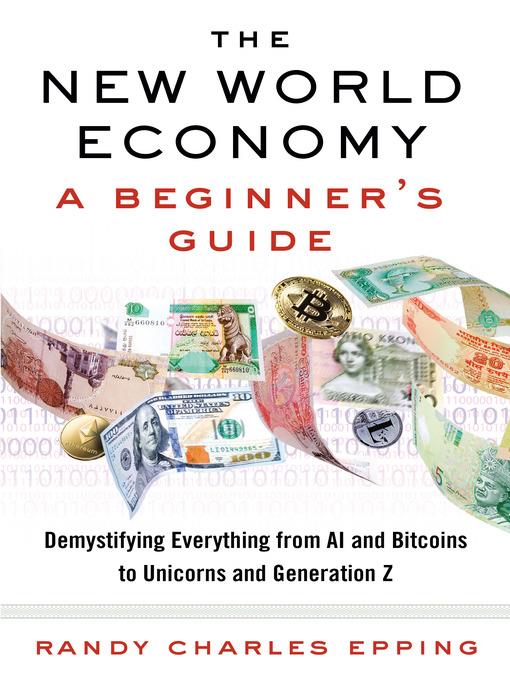
The New World Economy
A Beginner's Guide
فرمت کتاب
ebook
تاریخ انتشار
2020
Lexile Score
1440
Reading Level
12
نویسنده
Randy Charles Eppingشابک
9780525563211
کتاب های مرتبط
- اطلاعات
- نقد و بررسی
- دیدگاه کاربران
نقد و بررسی

October 15, 2019
Thoroughgoing survey of the globalized, interleaved economy and its discontents. If there is a single takeaway from management consultant Epping's (A Beginner's Guide to the World Economy, 2001, etc.) book, it's that chaos is king and control nearly impossible, whether of a command economy or of world trade. "Success in the new fusion economy," he writes, "may depend in large measure on learning that we can't control everything." Just so, there are many variables in determining whether an economy is performing well or poorly and no single gauge of success or failure; trying to impose that control on it may produce inflation on the one hand or recession on the other--or, for that matter, the mix of both known as stagflation, "a worst-case scenario." The author takes a somewhat contrarian view on certain matters: While he notes the shortcomings and costs of cryptocurrency, among them the fact that "bitcoin mining" annually uses as much energy as the entire nation of Ireland, he also opines that "the current system isn't necessarily better than an alternative system using cryptocurrencies." Epping looks at the facts of global trade and, without naming names too pointedly, exposes the folly of trade wars, tariffs, and other hallmarks of economic nationalism: "Politicians who speak of 'winning' or 'losing' in trade don't understand that all trade in goods and services is balanced by monetary transfers moving in the opposite direction." In the global sphere, it's more sensible to blame governments that "allow most of the new wealth to flow into the coffers of the rich" than to blame globalized trade for our woes. Among the other topics that Epping discusses are the externality of pollution, hitherto seldom factored into the cost of doing business but now increasingly important to reckon with, and the economic behavior of different generations, from the acquisitive and consumptive baby boomers to the comparatively frugal (necessarily, as it happens) millennials. A welcome user's manual for anyone invested in the market or otherwise engaged in the financial sphere.
COPYRIGHT(2019) Kirkus Reviews, ALL RIGHTS RESERVED.

December 16, 2019
International financial consultant Epping (A Beginner’s Guide to the World Economy) explains modern economic concepts and terminology including Bitcoin, tech “unicorns,” “the internet of things,” and “crony capitalism,” in this straightforward, neoliberalism-infused guide. Arranging his text around questions that economics novices might have, Epping returns frequently to the tenets of supply and demand and comparative advantage, encouraging readers to pay down credit card debt and learn how to invest in stocks and bonds. He criticizes border walls and other trade barriers as being based on fear rather than sound economic principles, contending that the gig economy is a “viable work alternative” for people “not looking for job security per se.” Epping credits millennials and Generation Z for “opting to use their money to make the world a better place,” yet he cautions that “political correctness” and “buying locally” can have unintended and counterintuitive consequences, such as overlooking the benefits of “increased economic cooperation” between countries and the higher carbon footprint of, for instance, tomatoes grown in Dutch greenhouses compared to those shipped to the Netherlands from Spain. Epping explains economic concepts clearly and succinctly, yet his free market enthusiasm seems to discount the pain caused by the Great Recession, and he doesn’t fully explain how capitalism and climate change policy can coexist. Readers should consider this a useful starting point rather than a definitive guide.

























دیدگاه کاربران